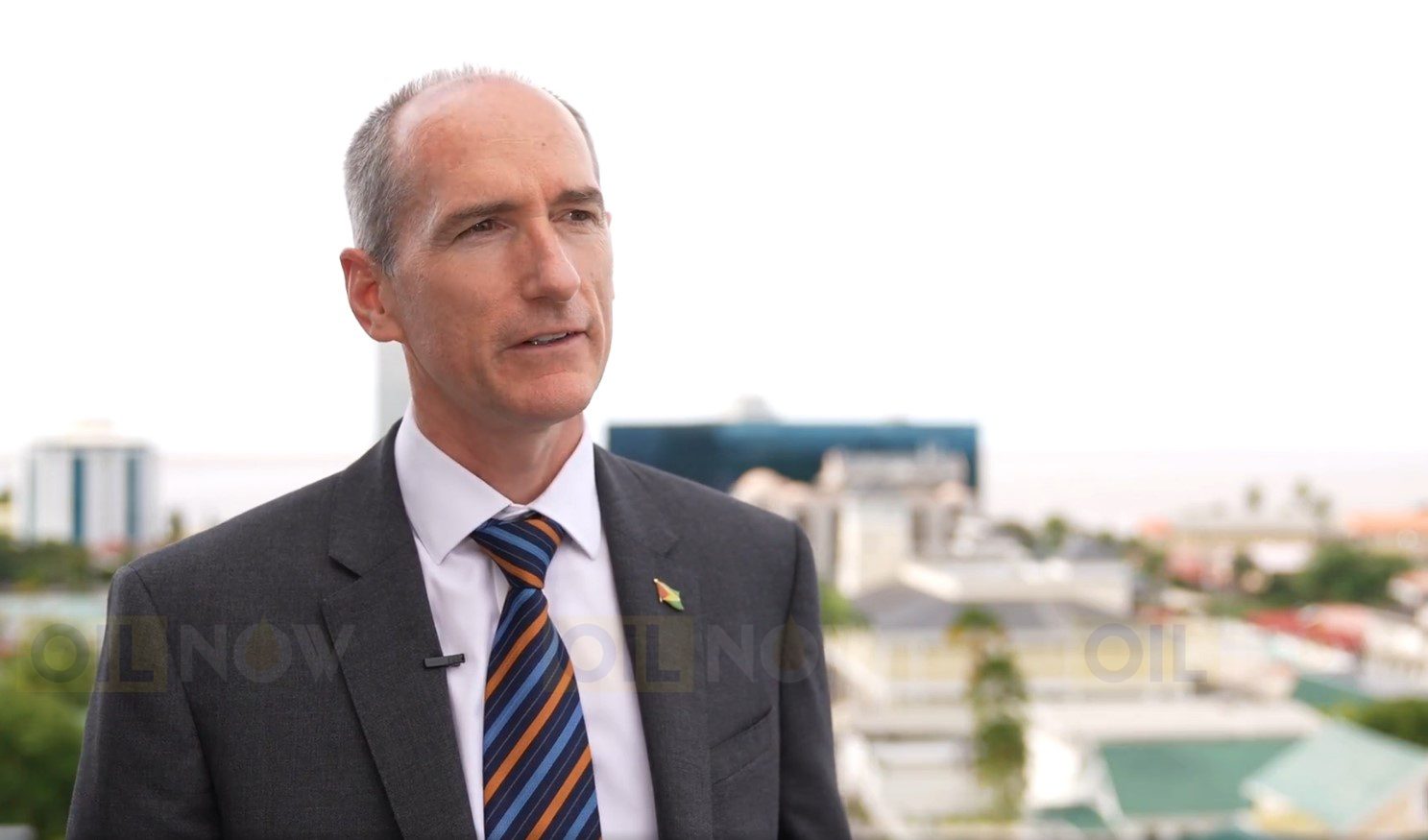To bolster the competitiveness of Guyana’s burgeoning economy, strategic investments in infrastructure and targeted training initiatives are pivotal determinants. This is according to ExxonMobil Guyana President, Alistair Routledge. Exxon is the operator of Guyana’s Stabroek Block.
In his presentation at the Guyana Energy Conference and Supply Chain Expo 2024, Routledge said the oil giant has maintained a “strong relationship with the government” and continues to support initiatives to build the South American nation’s capacity in the oil industry.
Guyana lacked the onshore facilities to support oil production so when Exxon began preparing for first oil at the Liza Phase 1 project, it relied heavily on Trinidad and Tobago’s infrastructure and expertise. Now, a little over four years after production began, most of Exxon’s operations are being handled in Guyana. The Guyana Shore Base Inc. (GYSBI) and more recently, the Vreen-en-Hoop Shore Base Inc. (VEHSI) are key players helping to make this possible.
“We needed…to establish that supply chain here in Guyana largely in the long-term because it is more efficient… [GYSBI] has become a very effective, strategic hub for our offshore operations. We continue to look at how do we also bring more of the project investment component of our activities here in Guyana and that is where VEHSI comes in,” he outlined.
VEHSI will serve as Exxon’s special purpose vehicle for the Yellowtail development – Guyana’s fourth deep water project. Yellowtail is well advanced with the ONE GUYANA production vessel on track for the 2025 sail-away deadline.
Routledge also touched on the commissioning of the FPSO facilities simulator, part of the larger Guyana Technical Training Institute (GTTI) project at Port Mourant.
“[And it] really is symbolic of what we are doing on training,” he said.
“There is a small but eager population that wants to be a part of this wonderful journey that we are on,” he stated. “They do not necessarily have all the skills or experience. So, these strategic investments in infrastructure, training, and improving the workforce are absolutely critical to raising the level of competitiveness of the economy…not just for oil and gas but for the future of the economy.”



